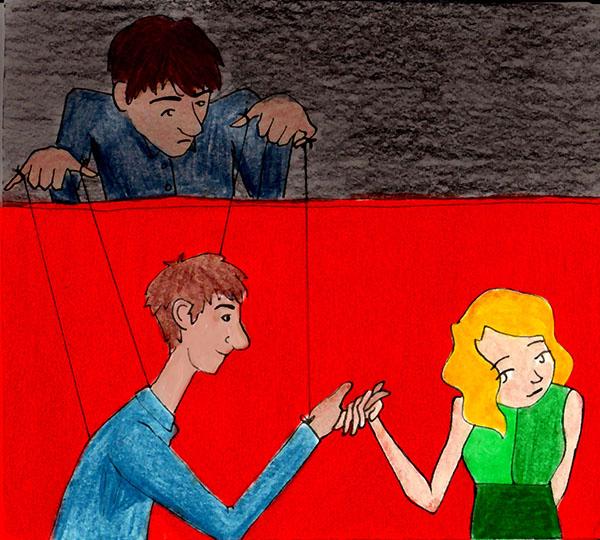With most interactions occurring online, it is likely to encounter individuals that are not honest about their identity. This can be scary for people searching for online relationships.
Fifteen percent of Americans used an online dating app or website in 2015 and that number is only going to increase as the younger, more tech-savvy generation filters into online dating.
The idea of catfishes can discourage some people from engaging with online dating at all. Others become apprehensive while navigating the sites, staying skeptical about every interaction. Being skeptical can be good when it comes to staying safe from predators, but the simple idea of a catfish should not draw people away from turning to a computer to find their soulmate.
“Catfish: The TV Show” follows relationships that form online. However, the show does not actually follow catfishes because the people are honest about their identities. This show tends to portray people meeting online in a negative way, as if their relationships are illegitimate.
Yet online dating is a growing business, as more users turn to the sanctity of their home to find their true love. Initially, online dating was directed toward older individuals through sites like eHarmony. Gradually sites popped up that directed their business toward specific groups such as BlackPeopleMeet and ChristianMingle. As the younger generation starts to look for relationships online, they demand the free platforms they are used to. The result is sites like Tinder and Grindr. All these types of websites coexist online and are heavily used.
People enjoy taking on other online personalities all the time. Just look at Sims, Second Life or any online gaming system. People add attributes to their avatar they don’t necessarily have in real life. People can also gain a new sense of confidence while talking to other people, even if it’s not through face-to-face interaction.
The fundamentals when it comes to a catfish are pretty simple. They’re not honest about who they are. They can use fake names, locations and lie about their physical appearance. But when it comes to the actual character of a catfish, it can seep through in a way just as real as an in-person relationship.
Coming into relationships, people pretend to be who they’re not all the time. Whether it’s pretending to have an Australian accent or telling a person on a first date that you were captain of the shark wrestling team, most relationships lack a sense of truth. This is probably because people attempt to portray themselves in a light they think the other person wants. When in reality all that most people want is total honesty.
Relationships with catfishes are not just a one-night type of thing. These can last for long periods of time. When these people communicate this much, they are no longer putting on an act, they are showing their character through a made-up persona. This demonstrates how important communication is to a relationship.
It’s like an author basing a character off himself but giving the character a new name and city. In the end, the character depicted is still a representation of the author.
There is something driving catfishes to take on these online identities. Many people argue they are driven by sex, but this is an unrealistic and cynical view. In fact, most of these relationships do not result in physical contact. If sex was the desire, they would not persist for daily communication. They are most likely driven to becoming a catfish because they are insecure about the things they are covering up.
We need to stop shining such a negative light on catfishes. Their relationships, although lacking the physical world aspect, are just as complex and satisfying as in-person relationships.
Instead of just assuming that catfishes are predators and have bad intentions, we should try to understand what drives people to do this and whether there is a way to encourage catfishes to come to light about who they really are.
Sam Rios can be reached at [email protected] or @theeemessiah on Twitter.









